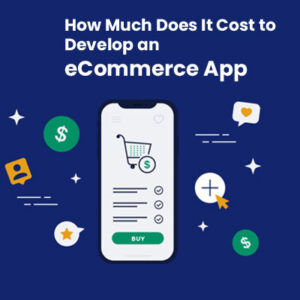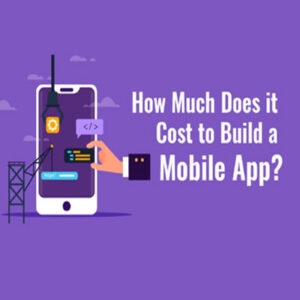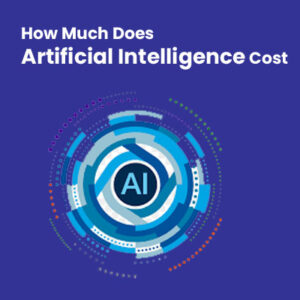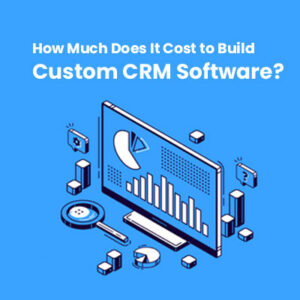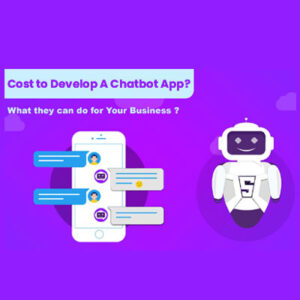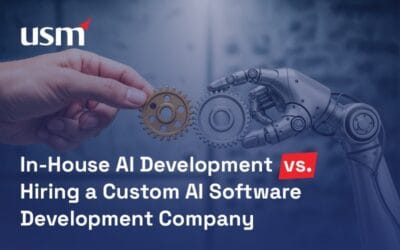Top 5 Success Stories of AI in e-Commerce Industry
Artificial Intelligence is the most popular technology, which has a significant impact on almost every possible thing. I think I no need to give an introduction about this advanced technology and the broad applications of this new and wonderful domain, as I already posted 50+ articles on our blog page.
Click on the link to learn much more about Artificial Intelligence technology
A large number of online businesses believing that AI technology has a positive impact on their bottom line and offering a competitive advantage. Every crucial step, such as retailer’s website visiting, products adding to the cart, ordering, paying, and checkout can be automated using AI capabilities.
As per the research reports, AI will start using a minimum of 60% of e-commerce representatives by 2020. On the other side, 30% of revenue growth will be associated with AI technologies only.
Moreover, as per the PwC study, Artificial Intelligence usage will increase global GDP by 14%, i.e. approximately 15.7 billion dollars by the year 2030.
Get a free quote
Recommended to read: How Much Does Artificial Intelligence Cost?
Have a look at the below statistics report of AI technology in the E-commerce sector.
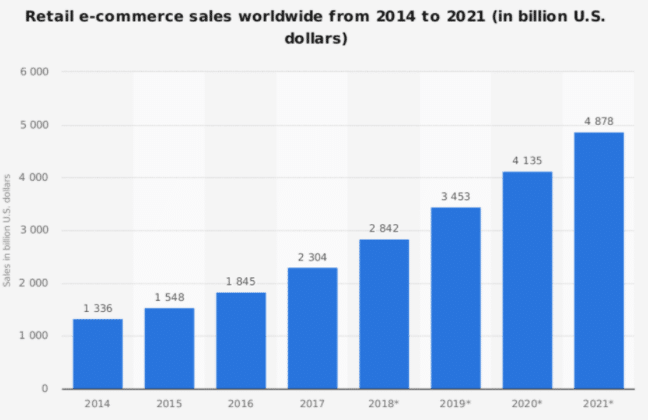
Today, in this blog, I’d like to let you know about the success stories of famous eCommerce companies that are implemented AI technology to leverage their business.
Now, let’s look into the
5 Success Stories of Artificial intelligence in eCommerce field
#1 Burberry
Luxury brands are reluctant to implement Artificial intelligence and switch to online shopping. The use of AI raises fears from the belief that wealthy clients will expect tailor-made items and one-to-one customer services. As everyone, brick and mortar shops are the most frequently purchased places in the luxury industry.
In 2006, suddenly, Burberry Company had decided to disrupt the industry and become an early adopter of the advanced technology named ‘Artificial intelligence’. Bridging the gap between offline and online customer experiences is the main aim of this firm.
Burberry has proven that the AI business can take advantage of the competition and gain more customers. By 2025, 20% of luxury sales are expected to take place online, and this strategy has proven to be successful.
Thankfully, Burberry has proven that Artificial intelligence and machine learning can take advantage of the competition and win more customers. By 2025, 20% of luxury sales are expected to take place online, and this strategy has proven to be successful.
McKinsey stated that “As 80% (Approx.) of luxury sales are influenced by online eCommerce stores, the importance of online channels will not be ignored”. The share of tech-savvy purchasers like Genz and Millennials will be 45% of the global luxury market by the year 2025.
To benefit from Artificial intelligence, Burberry used RFID tags in its mortar and brick stores to collect the in-depth data about how customers behave in their stores. This data consists of past orders and online customer activity, and sales assistants can use it to meet consumers at brick and mortar shops.
In addition to AI implementation, the brand has also used big data to identify fake products. It is possible by the use of AI-based image recognition. This trending technology from Entropy assisted in identifying counterfeit products from the picture.
#2 StitchFix
StitchFix has transformed to online shopping in 2011. Collecting data on their style preferences from clients, StitchFix combines the expertise and AI of stylists. The end result – customized clothing unique to the client style.
Stitchfix recognizes style as a combination of features such as arm length, neckline, and color. After evaluating the features, the algorithm reassembles and then sends the final design to the stylists who create a list of them.
Apart from the design component, StitchFix uses AI to streamline its logistics and operations. After requesting for clothing, the algorithm selects the most convenient location of a warehouse, which is closest to the consumer’s location and finds the correct way to see all the goods being picked up at the same time.
#3 Starbucks
Will AI replace Baristas? Starbucks has proven this to be the case to some extent. In 2017, the coffee chain introduced the Virtual Assistant, which enables customers to order coffee and pay through online using voice or text. The human need to prepare a virtual assistant order is not excluded.
When a customer enters a Starbucks coffee store, the barista can retrieve information and place an order through a point-of-sale device in the client’s previous purchase history.
Unlike the text option, Starbucks has also unleashed Starbucks reorder skills for Amazon Alexa. Clients can submit their repeat order to the selected coffee shop by saying “Alexa, order my Starbucks”.
Starbucks also collects data on customers past order history. Based on that, models and their current preferences can be established between clients of previously ordered products.
Capturing meaningful insights into customer behavior, Starbucks was able to create appropriate recommendations for its clients. Extracting meaningful insights on consumer behavior, Starbucks can make tailored recommendations for its customers.
#4 Domino’s Pizza
The online distribution channel for Domino’s Pizza accounts for 55-58% of all orders. Domino’s uses the information to acquire a 360-degree overview of its trusted consumers.
For example, with the data collected, Domino’s can derive insights on who is the dominant buyer in the household, what channels they are using and how they are interacting with those channels. This helps make killer offers (just precisely the right pizza today), but also grant unique coupons.
With that information, Dominos can gain insight into who buys the most in the home, what online websites they use and how they deal with those channels. It helps to make exclusive coupons and special offers deals. In addition to using AI to understand customer needs better, Domino’s Pizza uses algorithms to tailor pizza quality and taste to its clients.
The pilot project revealed with a smart scanner that checks pizzas when baked in countries like New Zealand and Australia. Recommendations are made on “perfect” pizza, based on data previously entered into the system.
The AI-based scanner gives grade/score to each pizza from the Microwave oven to specific criteria based on the type of pizza, size of the pie, and the number of toppings. It is possible by feeding a picture of freshly baked pizza into the AI system and comparing with previously baked pizzas before delivering to the customers.
#5 Amazon
Last but not least, the leading online retailer store, Amazon has also adopted AI subsets like natural language processing (NLP), deep learning and machine learning (ML).
Amazon uses a pre-shipping model that uses data analytics to estimate which products have the highest purchase potential on the website and when the customer will need them.
Keep in mind that Amazon has a massive directory of things and the customer can simply get lost in multiple item categories, helping to reduce product visually search time, quicken the purchase and provide better shopping experience.
With accurate estimates of total product demand, Amazon can simplify its logistics, transferring enough products to warehouses to meet market needs. This means that delivery time reduced and demanded products remain in stock. Moreover, Predictive Analytics has been supporting to boost up the product sales and profits of Amazon.
Instead of estimating customer needs, inventory management and optimizing logistics, Amazon uses Artificial Intelligence to define the right price for each product. The cost is adjusted based on availability, competitors’ price, on-site activity, order history, expected profit, etc. As the customer data is analyzed and subject to updates, prices will be modified every a few minutes.
Final Words:
AI technology is widely used by famous eCommerce companies to optimize cost in real-time, create the best product design, predict the inventory and sales, to minimize fake products, and finally to create a great online shopping experience.
Case studies of Amazon, Domino’s Pizza, Starbucks, Stitch Fix, and Burberry have proved that they improved the bottom line and won over customers.
If you want to adopt AI technology and improve your e-commerce business growth and revenue, please feel free to contact us.
USM Business Systems has two decades of professional experience in providing AI and ML services. We have associated with 1000+ clients and helped them in growing their businesses.
Partner with us today and join the list of our successful clients!




